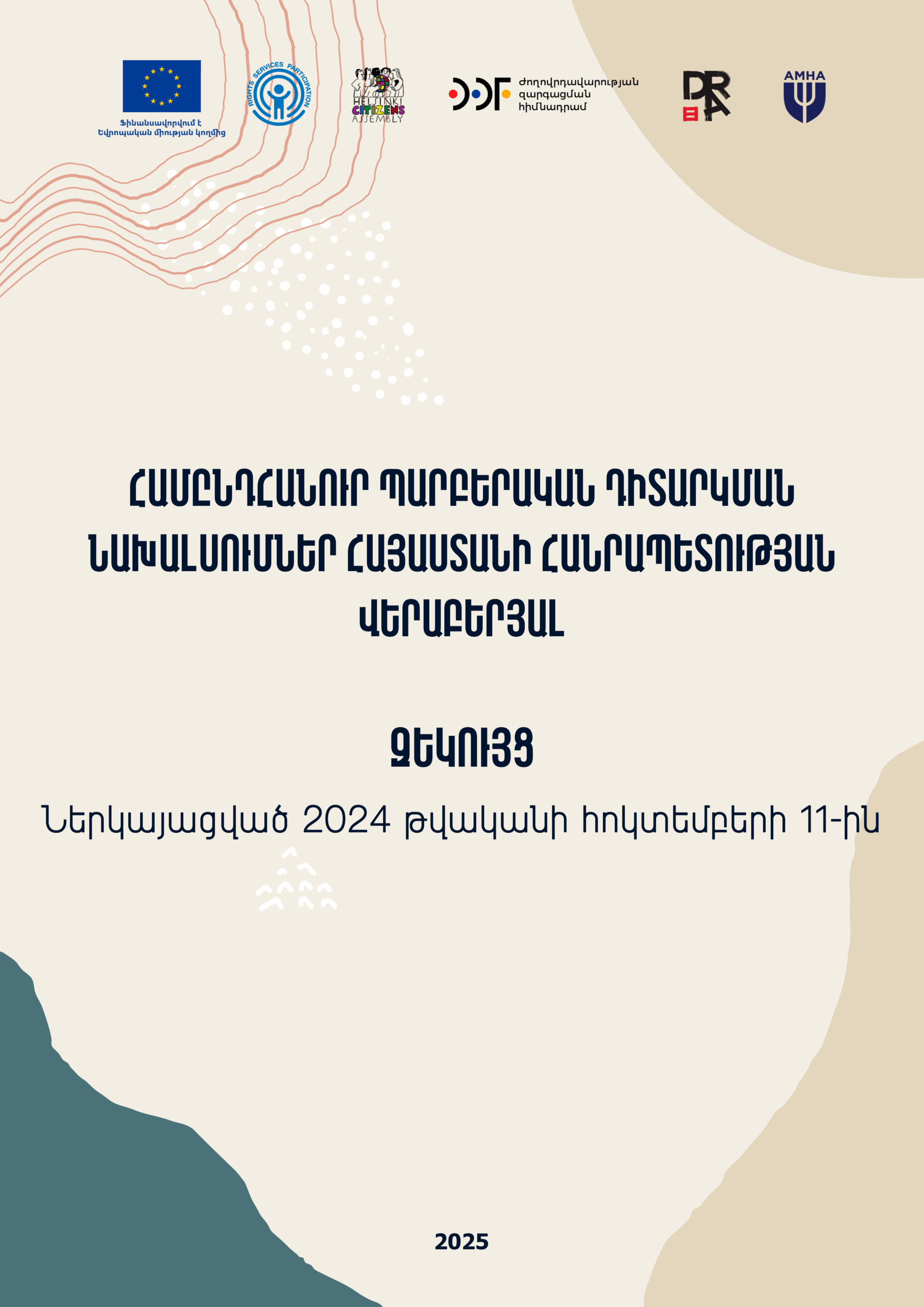

Since 2014, the Republic of Armenia adopted the policy of decentralization and deinstitutionalization of mental health services by adopting a number of strategic documents. Despite this, the actions of the state often contradict the adopted policies, appropriate measures and allocation of sufficient financial resources in the direction of decentralization and deinstitutionalization have not been implemented.
- For example, the allocation of 5 billion AMD (about 10 million dollars) from the government’s budget to the reconstruction of the largest psychiatric hospital in Armenia in 2021 proves the contradictory activity of the state.
- The key problems in the sphere of mental health in Armenia are inadequacy of the legal framework, lack of access to quality services that address persons’ needs and rights, shortage of human-rights based services and qualified professionals, disproportionate distribution of services and resources between the capital and regions, inadequacy in early detection and prevention of mental disorders, misconceptions among the public about mental health and discriminative approach towards persons with mental health conditions, both in healthcare institutions and society.
- The legislative framework is constantly changing, but often does not guarantee the protection of the rights of persons with psychosocial disabilities or contradicts the international obligations undertaken by the Republic of Armenia. The observations and recommendations of international organizations and institutions regarding mental health are not properly implemented by the state. For example, back in 2017, as special rapporteur on the right of everyone to the enjoyment of the highest attainable standard of physical and mental health, Dainius Puras, after his visit to Armenia, emphasized, among other things, the importance of developing the capacities of family doctors in the primary health care sector in the direction of identifying and directing mental health problems, the priority of deinstitutionalization, the need to eliminate the institution of legal incapacity.
- The UN Committee on the Rights of Persons with Disabilities in its Concluding Observations in 2017 also recommended expediting the process of deinstitutionalization, prohibiting involuntary hospitalization and forced institutionalization and introducing supported decision-making regimes instead of deprivation of legal capacity. Nevertheless people continue to live in psychiatric institutions, are deprived of legal capacity and to be involuntarily hospitalized.
- In the report of the Working Group on the Universal Periodic Review, published on March 18, 2020, the recommendations addressed to Armenia regarding the provision of right to health mainly refer to the provision of health services for all levels of society and in rural communities.
- In the context of ensuring right to health, this Submission refers to the state policy in the field of mental health, mental health services, their accessibility and affordability and to the problem of public awareness regarding mental health.
Read the Report HERE.
| This document was prepared with financial support of the European Union. his document was prepared with financial support of the European Union. The content of this document is the sole responsibility of Helsinki Citizens’ Assembly-Vanadzor, Democracy Development Foundation, Disability Rights Agenda NGO, and Armenian Association of Mental Health, and cannot, in any way, be considered as reflection of views or positions of the European Union. |
Դիտումներ: 7

